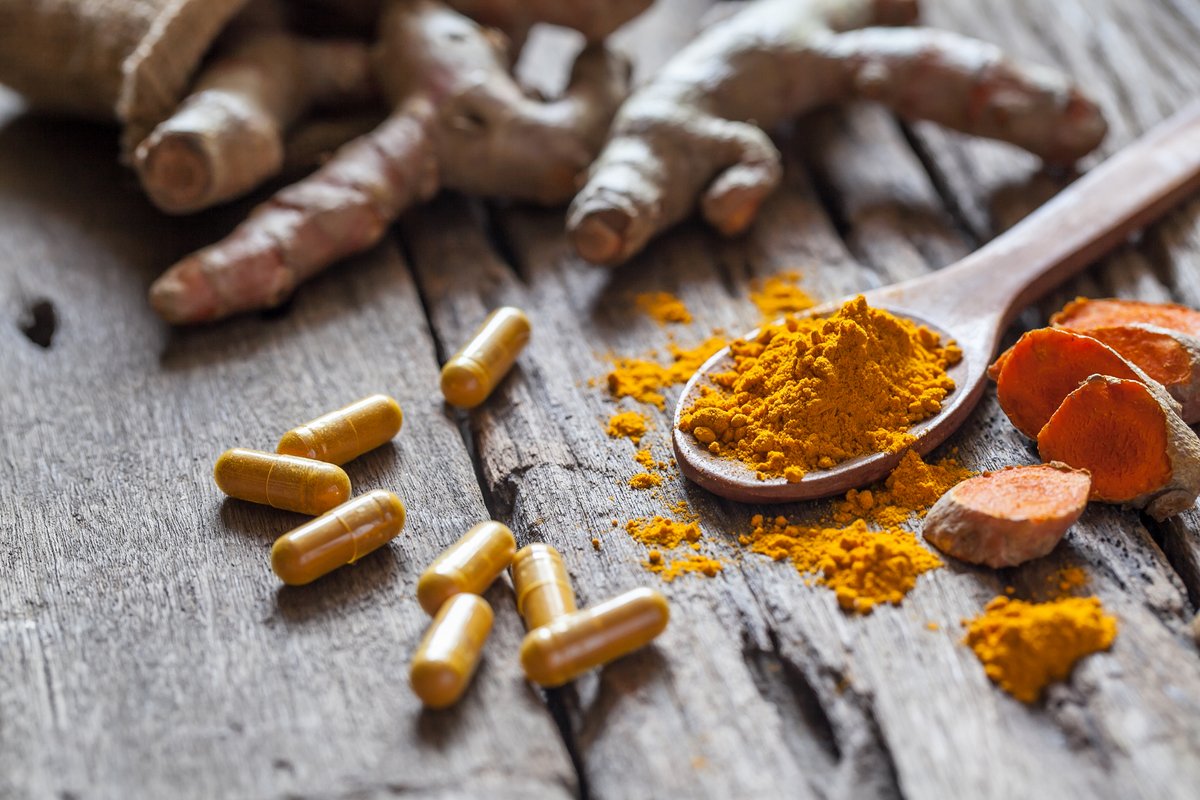
“Turmeric is by far the most-studied spice, with the widest range of health benefits discovered to
date.”
~ Dr. Sarah Ballantyne
First Medicinal Use
Turmeric’s official name is Curcuma longa. It has a thick underground stem called a rhizome, and this is where we get the spice. You may see these sold in your local health food store next to the ginger – and in fact, they look a little alike until you slice them open. That bright yellow-orange is turmeric’s signature color.
While turmeric has gotten a lot of attention in the Western medical world more recently, it’s been a regular part of Indian cooking for over 4,000 years, and has been part of Ayurvedic medicine for over 2,000 years. It was traditionally used to improve digestion, relieve arthritis, reduce inflammation, heal wounds, treat respiratory conditions, regulate menstruation, and more. Modern science is now confirming these benefits.
10 Scientifically-Proven Health Benefits
If you enter the keyword “turmeric” in Pubmed (a research database), you will find 6,000 studies. Here are 10 benefits highlighted in a recent research review.
-
- Anti-oxidant
- Anti-diabetic
- Anti-inflammatory
- Anti-microbial
- Anti-tumor
- Immune-modulating
- Gut-protective
- Liver-protective
- Heart-protective
- Neuro-protective
That’s an impressive list! You can see why there’s so much interest in turmeric. In fact, when I interview health experts on my podcast, I often ask them to share their favorite supplements. Turmeric often tops their list.
Benefits for People with Autoimmune Disease
The benefits above address many of the root causes and symptoms of autoimmune disease, but there have also been clinical trials looking at autoimmune disease specifically. This research is relatively new, so expect it to expand over time. Here are some highlights:
- Psoriasis – In a clinical trial of patients with mild to moderate psoriasis, a topical gel infused with turmeric was applied to psoriatic lesions. After nine weeks of application, lesions markedly improved, reducing in thickness, redness, burning, and pain.
- Ulcerative Colitis – A meta-analysis of seven clinical trials showed that when curcumin is taken alongside standard medication, patients are more likely to achieve and maintain remission.
- Lupus – In a clinical trial of patients with lupus nephritis, turmeric supplementation improved kidney health, decreasing proteinuria and hematuria.
- Rheumatoid Arthritis – In a pilot study of patients with RA, oral curcumin reduced both DAS and ACR scores, showing reduced disease activity, and reduced pain and tenderness in the joints.
- Uveitis – This study involved patients who experienced frequent recurrences of anterior uveitis. They were given oral curcumin supplementation for a year. 80% experienced improvement in eye comfort within a few weeks, and after 12 months 82% had maintained remission. Prior to supplementation, they experienced 1-4 relapses annually.
What Is Curcumin?
You may have noticed that some of the studies mentioned above used curcumin supplementation. This is a nutritional compound within turmeric, and it’s believed to be responsible for most of the health benefits. However, it’s only a small portion of whole turmeric (2-5%). That’s why most supplements contain concentrated curcumin extract, to maximize its impact.
One thing to keep in mind is that whole turmeric contains over 100 other nutritional compounds. Just because curcumin is the most well-studied doesn’t mean the others aren’t beneficial. That’s why whole turmeric is wonderful to use in cooking, and some supplements will include whole turmeric alongside a concentrated curcumin extract.
What Is Bioavailability?
Bioavailability is the percentage of a substance that gets absorbed into the bloodstream and can be actively used by your body. Turmeric (and curcumin) have low bioavailability. Most of it doesn’t make it to the bloodstream. That’s why most curcumin supplements use methods that boost bioavailability (and there are tricks we can use in cooking as well).
However, it’s important to note that the percentage of turmeric and curcumin that doesn’t make it to the bloodstream isn’t necessarily a loss. There are gut health benefits to these compounds, and gut health is intimately connected to overall health, including autoimmune health. In fact, 70% of our immune system lives in our gut. It’s still a good idea to boost bioavailability so that some curcumin makes it to the bloodstream, but turmeric offers benefit in both places. (No method makes curcumin 100% bioavailable, so your gut will always get some.)
Boosting Bioavailability in Recipes
-
- Add a healthy fat. Curcumin is fat-soluble, which means it needs some dietary fat in order to be absorbed.
- Heat it up. One study found it increased bioavailability 12-fold.
- Combine it with black pepper. Pepper contains a compound called piperine which interrupts detoxification of curcumin, allowing more of it to be absorbed. There’s a reason traditional Indian recipes combine the two. (Note: black pepper isn’t allowed during the elimination phase of the AIP, but it’s one of the first foods you can try when you’re ready for reintroductions.)
- Ferment it. This increases curcumin concentration within the turmeric and also increases its medicinal benefits. So, if you make your own sauerkraut or kombucha, add some grated turmeric to your next batch.
- Bonus tip: Be careful because turmeric stains. In fact, it was traditionally used as a clothing dye, so wear an apron when you cook. It can also stain your fingers, so consider wearing gloves if you’re preparing a whole rhizome instead of the dried spice. Otherwise try this scrub: put a little baking soda in a bowl and add just enough lemon juice to make a paste. Use this to scrub the stain off your fingers.
How Supplements Boost Bioavailability
- Liposomal curcumin uses fat to enhance absorption. Liposomes are spheres of fatty acids which encapsulate the curcumin. Since our cell membranes are also made up of liposomes, this allows easier delivery and absorption into the cell.
- Curcumin + turmeric essential oil also uses fat for absorption, but it’s a fat that contains synergistic compounds that naturally exist within whole turmeric.
- Curcumin + piperine is the supplement version of turmeric + black pepper.
- Nanoparticle curcumin breaks curcumin up into very small particles that are more easily absorbed by the body.
- Others. Research continues, and companies are always trying new ways to maximize bioavailability.
Choosing a High-Quality Supplement
- Third party testing: Unfortunately, supplement fraud is commonplace. Therefore, high-quality companies get their products tested by independent labs to verify purity and potency. This information should be readily available on their website.
- Allergen-free: The best brands also guarantee their supplements are free of common allergens, like wheat, soy, dairy, and eggs. Check supplement labels for allergen statements.
- Respected brands: The following brands meet these requirements and are often the ones sold by healthcare practitioners: Klaire Labs, Designs for Health, and Pure Encapsulations.
Liposomal Curcumin
Curcumin + Turmeric Oil
Curcumin + Piperine
What Are the Potential Side Effects?
Thankfully, this is a well-studied spice and supplement, and side effects are rare. However, some people have experienced digestive complaints, headache, and skin rash. Listen to your body and if you have a negative response, stop taking the supplement and see a healthcare practitioner.
N=1: Self-Experimentation
There’s a difference between bioavailability and bioeffectiveness. We are all unique. What works for one doesn’t always work for another. That applies to curcumin supplements as well. Each formulation works in a slightly different way. I know a one-size-fits-all approach would be much easier, but unfortunately that’s not how health works. It’s worth the effort to find out what works for you!
To conduct a self-experiment with curcumin: First consult with your healthcare team to make sure they don’t have any objections. Then, choose one supplement to try for one month. Keep a symptom diary, and write down how you feel before you begin and note any changes along the way. With all supplement experiments, there are three possible outcomes: positive, negative, or neutral. If you experience negative side effects, stop taking it immediately. If at the end of the month, you notice no benefit, also stop taking it. There’s no reason to take supplements that don’t improve your health. If you experience great benefit, that’s wonderful! You may choose to stay with that supplement, or try a different formulation to see if it has equal or greater benefit the following month. As long as you aren’t experiencing any negative side effects, always try a supplement for at least one month to give it a chance for cumulative impact.
Other areas to experiment:
- Timing: Some curcumin supplements are designed to be taken twice daily, others once daily, and others are time-released. They have different impacts on the body. Some people benefit most from a higher dose all at once, and others do better with divided doses over time.
- Dosage: Keep in mind that more isn’t always better, and since bioavailability varies not just by brand but by individual, you want to find the dose that’s best for you. Start low. In my own experiments, after finding the brand that worked best for me, I tried doubling the dose and noticed no additional benefit. High doses are also more likely to lead to side effects, so that should be done only under medical supervision.
- With or without food: Some practitioners recommend you take curcumin with food and others recommend you take it on an empty stomach. Try it both ways, and see what’s most effective and comfortable for you.
Disclaimer
There’s always a disclaimer in place on this website, but when an article mentions medications or supplements, I feel it needs repeating. I am neither a doctor nor a nutritionist, so this article isn’t a substitute for medical advice. I’m simply a woman trying to maximize her own health and sharing what I learn along the way. Some people experience benefit with curcumin, and others don’t. Always consult with your healthcare team when considering new supplements or treatments.
You May Also Be Interested In
Credit: image at top of page purchased from iStock.

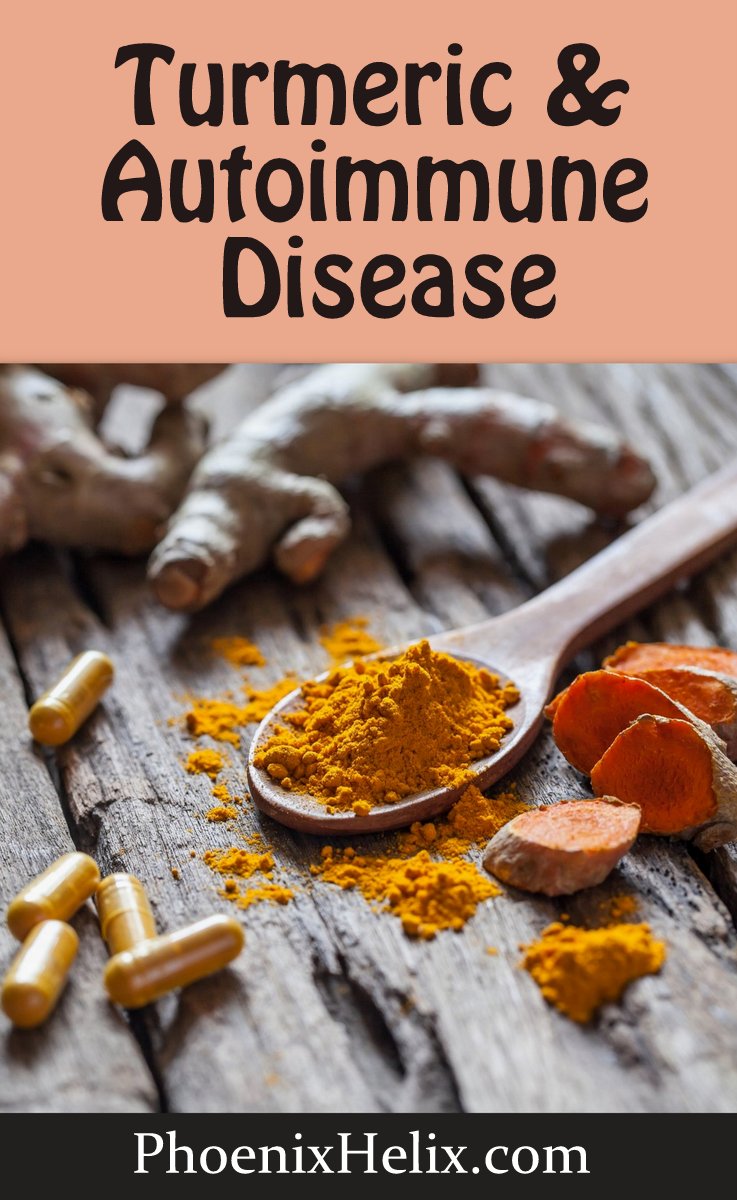
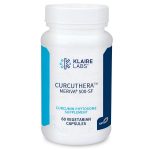
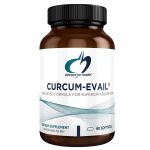
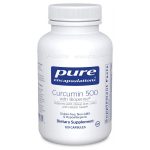


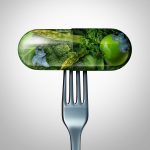




There are concerns with piperine affecting gut permeability. I take Meriva-phytosomal curcumin due to this as I had direct experience with this before this was being known/discussed. I have a history of UC but never before had upper gut issues. When it (piperine) increases gut perm, it increases amounts and effects of other medications. I ended up with upper gut issues for the first time in my life, thankfully pretty much resolved now. It is an issue to be aware of and has been noted by folks such as Bill Lagakos and others.
Hi Mary. Thanks so much for sharing your experience. It makes sense that if piperine increases absorption of turmeric, it may do the same for medication, especially if taken at the same time. What’s interesting about supplements is what works for one person doesn’t always work for another. That’s why I recommend self-experimentation. Some people swear by turmeric + piperine, but it’s not the right choice for everyone. I’m so glad you found a turmeric supplement that works for you.
Pure Encapsulations is now owned by Nestle, so I no longer trust the integrity of their products.
Hi Meghan. I know it’s a cause for concern when a big company buys a smaller one, especially Nestle. So far, it appears the quality of Pure Encapsulations supplements is still high which is why practitioners are still recommending it. As long at they continue to use third party testing to verify the purity and potency of their products, that’s a good measure. But I agree with you that it’s something to watch out for.